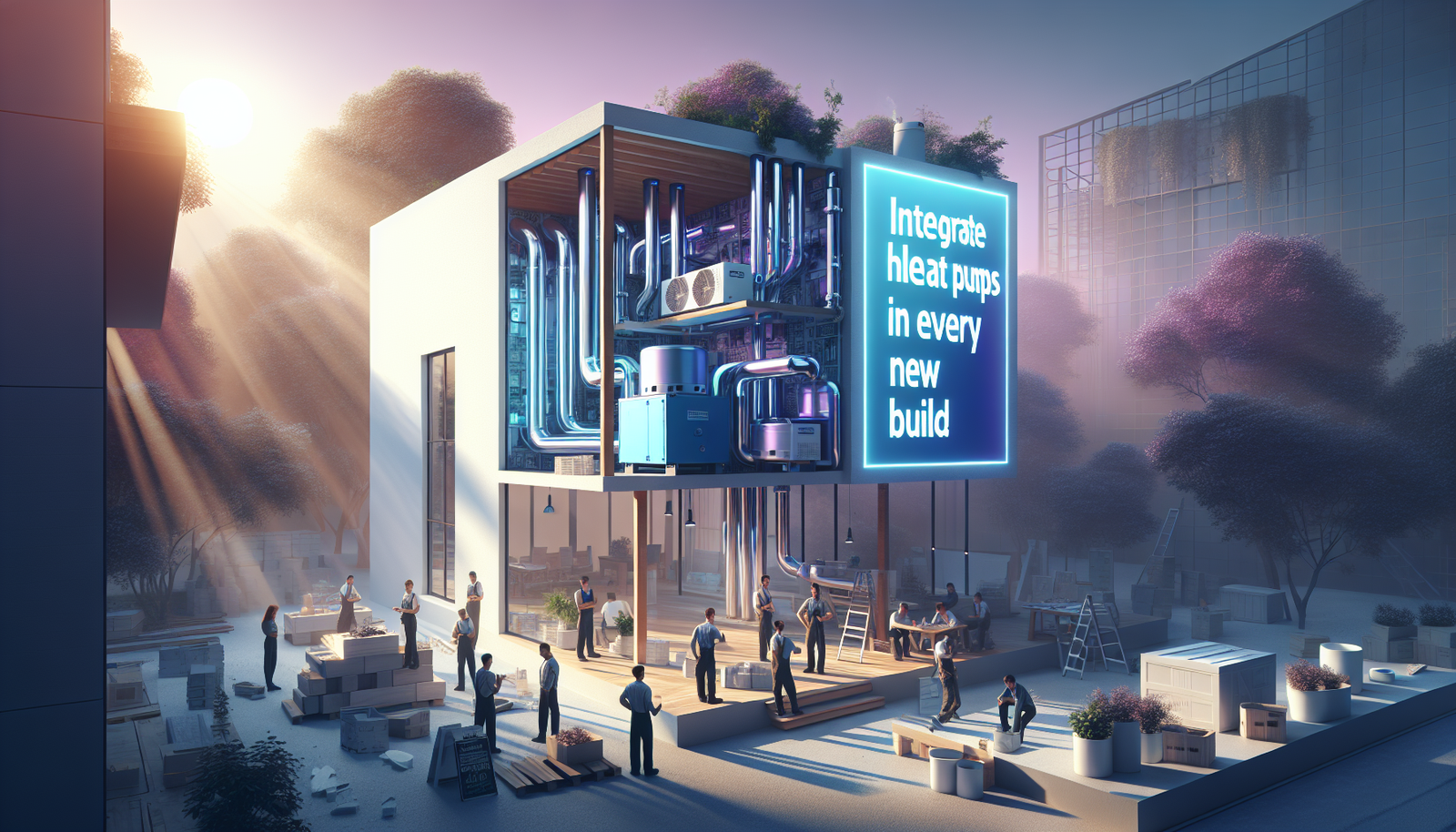Systematic Integration of Heat Pumps
Encouraging the integration of heat pumps in every new construction represents a strategic opportunity for the energy transition. These modern systems optimize energy consumption while significantly reducing greenhouse gas emissions. The installation of heat pumps during new construction is not just an environmental choice; it also proves to be an economically optimized pricing decision.
Economic Benefits of Heat Pumps
Heat pumps show impressive performance in terms of energy efficiency, achieving substantial savings on heating bills. This system allows for a reduction of energy expenses by three to four times compared to traditional heating. The effect of scale becomes palpable when these installations are mandated for builders, leading to lower costs at the factory exit.
Adaptation to Environmental Regulations
The environmental regulation RE2020 promotes the adoption of sustainable solutions in recent constructions. It encourages the implementation of high-efficiency devices, particularly heat pumps, in both collective and individual housing. This approach aligns with a clear intention to reduce the carbon footprint of the construction sector.
The Challenges of Decarbonization
In a context where decarbonization is an unavoidable requirement, the integration of heat pumps becomes essential. Every newly built building without this equipment undermines efforts against climate change. By streamlining architectural choices towards sustainable energy solutions, society can hope to meet the greenhouse gas reduction targets set by institutions.
Mobilization of Construction Stakeholders
Professional organizations in the construction sector, in consultation with political decision-makers, must intensify their efforts in favor of a mandate to integrate heat pumps. Coordinated actions could help popularize the advantages associated with these technologies. Construction stakeholders, engage in this ecological and ethical transformation that would standardize construction practices.
Breaking Myths Around Heat Pumps
Many prejudices persist regarding the effectiveness of heat pumps, especially at negative winter temperatures. However, these systems are equipped with efficient auxiliary devices, ensuring heating and comfort regardless of the climate’s harshness. Informing the public about the realities and capabilities of this equipment is essential to promote their adoption.
Towards a Sustainable Future
Integrating heat pumps into the French real estate landscape is a significant challenge. The prospect of a sustainable future relies on technological innovation capabilities as well as the engagement of citizens and construction professionals. The systematic integration of ecological solutions in every new construction presents itself as an essential lever for preserving our environment.
Frequently Asked Questions about Integrating Heat Pumps in New Constructions
What is the importance of integrating a heat pump in a new construction?
The integration of a heat pump in a new construction significantly reduces the building’s carbon footprint by using renewable energy for heating, contributing to the decarbonization of the construction sector.
What are the economic benefits of installing a heat pump during construction?
Installing a heat pump during construction allows for economies of scale, reducing installation costs. Additionally, these systems provide long-term savings on energy bills.
Are heat pumps effective in very cold climatic temperatures?
Yes, modern heat pumps are designed to operate efficiently even at negative temperatures, often equipped with an electric auxiliary heater to ensure optimal functioning.
What are the current regulations regarding the installation of heat pumps in new constructions?
The environmental regulation RE2020 promotes the use of heat pump solutions in new buildings, requiring builders to integrate high-performing systems aimed at improving energy efficiency.
How can a heat pump improve the comfort of a new house?
Heat pumps provide uniform heating and can also offer air conditioning in the summer, ensuring optimal comfort throughout the year.
Are installation costs for a heat pump economically viable in the long term?
Yes, although the initial investment may seem high, savings on energy bills and government subsidies often make the installation of a heat pump economically viable in the long run.
What financial assistance is available for installing heat pumps in new constructions?
There are several financial aids available, including state grants and incentive programs such as tax credits that reduce the installation costs of heat pumps in new constructions.
Can all new constructions integrate a heat pump?
Generally, most new constructions can integrate a heat pump, but it is necessary to consider the building’s configuration and specific energy needs to choose the most suitable system.
How to choose the right type of heat pump for a new construction?
It is important to consider various factors such as the size of the building, heating needs, and the type of heat pump (air/air, air/water, ground/water) to make the best possible choice.






